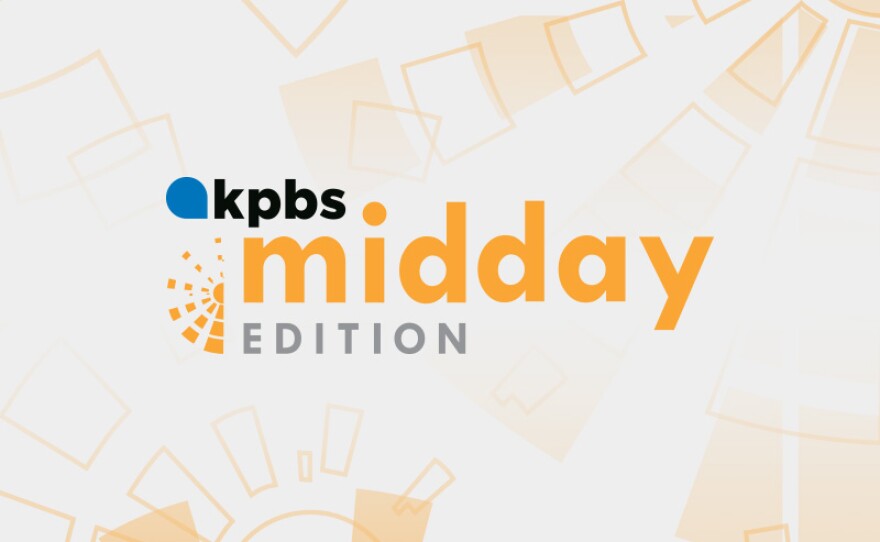California Regulators Say Ratepayer-Financed Wildfire Fund Can Move Forward
Speaker 1: 00:00 Despite power outages and safety upgrades, high winds and electricity always have the potential of sparking wildfire. Because of that California rate, payers will now be paying a surcharge on their utility bills. The state public utilities commission Thursday approve the charge to help fund a $21 billion wildfire fund that utilities can use to pay for wildfire damage caused by their equipment. Joining me is San Diego union Tribune, energy reporter, Rob nickel, Leschi and Rob. Welcome to the program. Good to be back morning. Is this the same wildfire fund approved by the state legislature earlier this year, Speaker 2: 00:36 correct? Yes. Back in July they had what they called an urgency statute and they passed assembly bill 10 54 it took less than a week. It was controversial, but the uh, the governor was supported it. A number of other people in the legislature supported it. It got through with a super majority. And so yesterday the California public utilities commission had to sign off on the funding mechanism for this wildfire fund, which comes to $21 billion. And they did. How does the fund work? The fund works this way. If a fire is ignited and it comes from or it's a, it's a, a, it's origination comes from a, uh, utility equipment and very important the, if the commission has determined that the utility has acted responsibly even though they had an ignition, then if that happens, then the utility can access that money, but there's a number of things they have to do in order to get there. First of all, as I said before, they have to show that they acted responsibly. Secondly, they have to kick in 10 point $5 billion out of that 21 billion that comes from shareholders within the utility, and then they also have to show that they need that money to pay the expenses that that caused that fire. Speaker 1: 02:02 Now, the commissioners were unanimous in their approval. Did they say why they thought this fund was such a good idea? Speaker 2: 02:09 They pointed to three big reasons. First of all, they said, this will help improve utility credit ratings and utility credit readiness in California have been suffering in the last year or so and right after assembly bill 10 54 passed in July, the credit ratings improved for the utilities and now, now I'll listen to her. Might say, well, why do I care if the utility credit ratings are better? Well, if they have high, if the utilities have a higher borrowing costs and they pass that onto rate payers, that's number one. Number two is the argument is that, well, now that we've got this wildfire fund, that wildfire fund will be activated and it can then get into the hands of wildfire victims quicker. And number three the utilities, since they're paying half of this 10 point $5 billion of this $21 billion fund. The other half comes from a rate, but the the plus side that the proponents say is that under the what we've got right now, if a utility has been deemed responsible but it's still ignited Y wild fires, the utility rate payers are on the hook 100% now it's 50 50 [inaudible] saying, yeah, and how much will it cost individual rate payers? Speaker 2: 03:22 It comes out to about $2 and 50 cents per month for every rate payer across the state, and that was another one. The interesting wrinkles about this in assembly bill 10 54 that the CPC signed off on yesterday is that through the funding mechanism, what they did was a, it's kind of complicated, but the department of water resources in California, they had a fund, a bond actually that was about to expire. They're funding this $21 billion wildfire fund bike stenting the bond, and that's how they're funding. So people have been basically paying that two 50 all along. Now it'll just go in another pot. Yes. Oh, there are critics that don't like the idea of rate payers paying into this fund at all. What's their argument? There's a couple of them. First of all, they say that it's, uh, improper, uh, to be able to take $2 and 50 cents a month from rate payers without having a evidentiary hearing. Speaker 2: 04:21 They did not have an evidentiary hearing on this. Secondly, there's another big problem they've got is, is that this under AB 10 54, it shifts the burden of proof from in the past, utilities had to prove that they had acted responsibly. Now under 10 54, the presumption is that they have acted responsibly and it's up to third party interveners or critics to prove that the, uh, utilities did not act responsibly. And that's because of the new safety requirements they have to, they have to uphold in order to actually have access to this. Yes, that's another, it's a very complicated piece of legislation, but that's exactly under this new regime. Uh, the utilities have to apply for a safety cert certification from the California public utilities commission. And that gives them the presumption that they are acting responsibly. And Southern California Edison and STG ne have already applied for the certification and got it now. So that makes you wonder what happens to the third big power company, PG and E eight, while they're in bankruptcy and they are, they will follow under, under this rubric of 10 54, AB 10 54, but only if they get through a bankruptcy proceedings. By next summer, I've been speaking with San Diego union Tribune, energy reporter Rob Nikolsky. Thank you so much. Thank you, Maureen. Speaker 3: 06:00 [inaudible].


